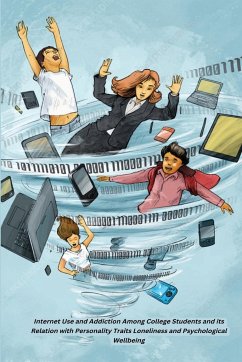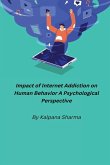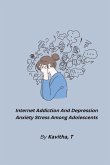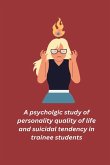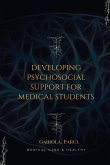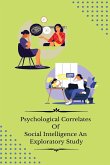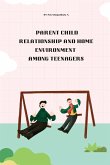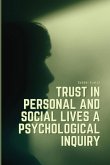The use of internet, computers, smartphones and different electronic devices has dramatically exaggerated over recent decades, and this increase is associated not solely with clear and tremendous advantages to the users, however additionally with documented cases of excessive use which frequently has negative health consequences. In associate increasing variety of states, the matter has reached the magnitude of a big public health concern. So many physical and psychological issues are created by excessive internet use. Internet addiction is answerable for poor tutorial performance of scholars, work connected problems, marital status issues, and social relationship connected problems. The scientific study of these motivations and their subsequent effects is of utmost importance to gain a deeper insight into the problem. The present study aimed to examine the internet use and addiction among college students and their relationship with personality traits, loneliness and psychological well-being among college students. The sample of the present study included 360 college students out of which 180 male and 180 female conventional degree college students and the age group of the sample was 18 to 25 years. The sample was selected from various colleges in Nashik city. The present study followed the comparative and correlational research design. Data was obtained through convenient (incidental/purposive) sampling technique. The tools of the study comprised of the Internet Addiction Test (IAT) by Kimberly Young (1998), NEO PI-R Personality Inventory by & Costa McCrae (1992), Loneliness Inventory by Uma Meenakshi R. and K. Krishnan (2010) and Psychological Well-Being Scale by D.S. Sisodia and Pooja Choudhary (2010).

